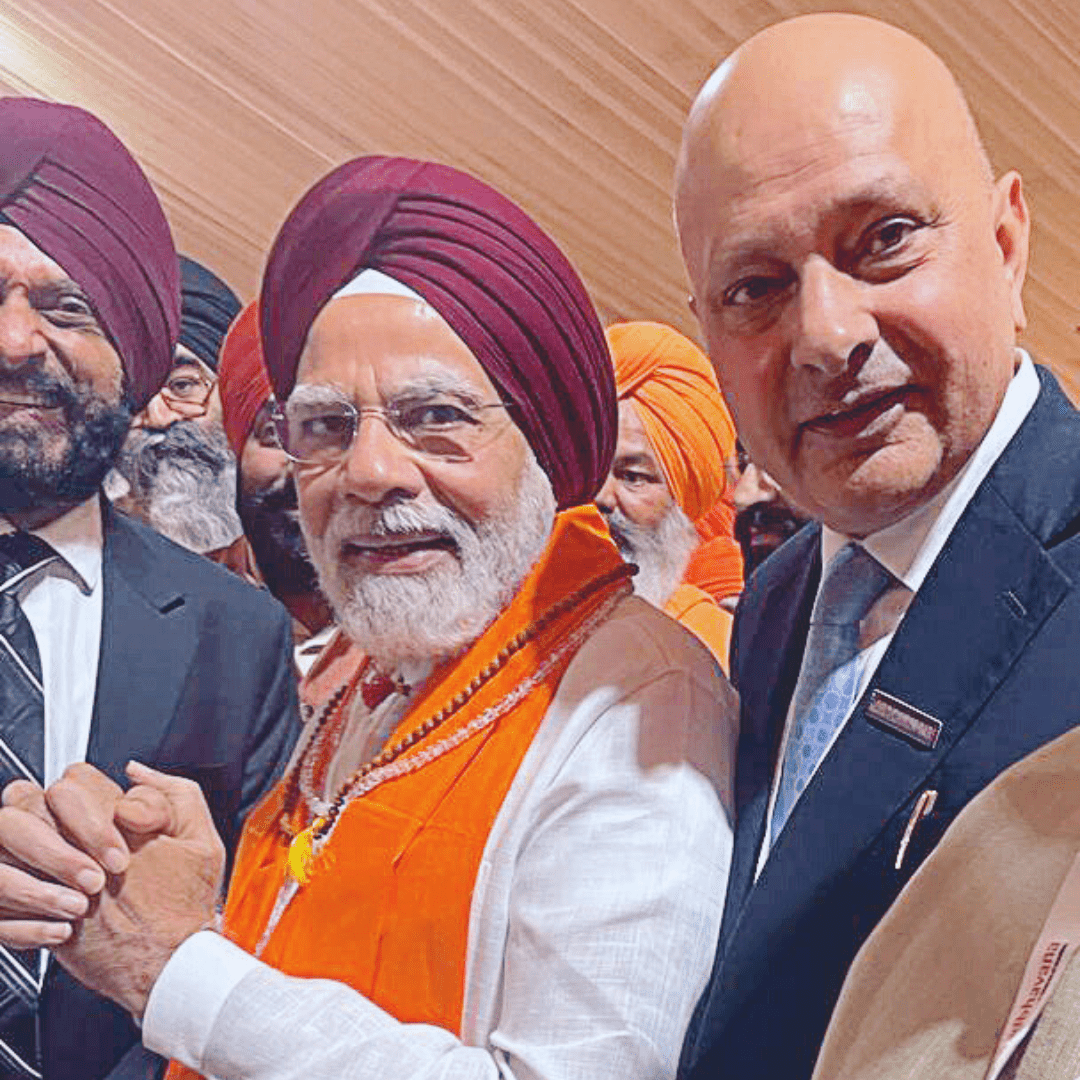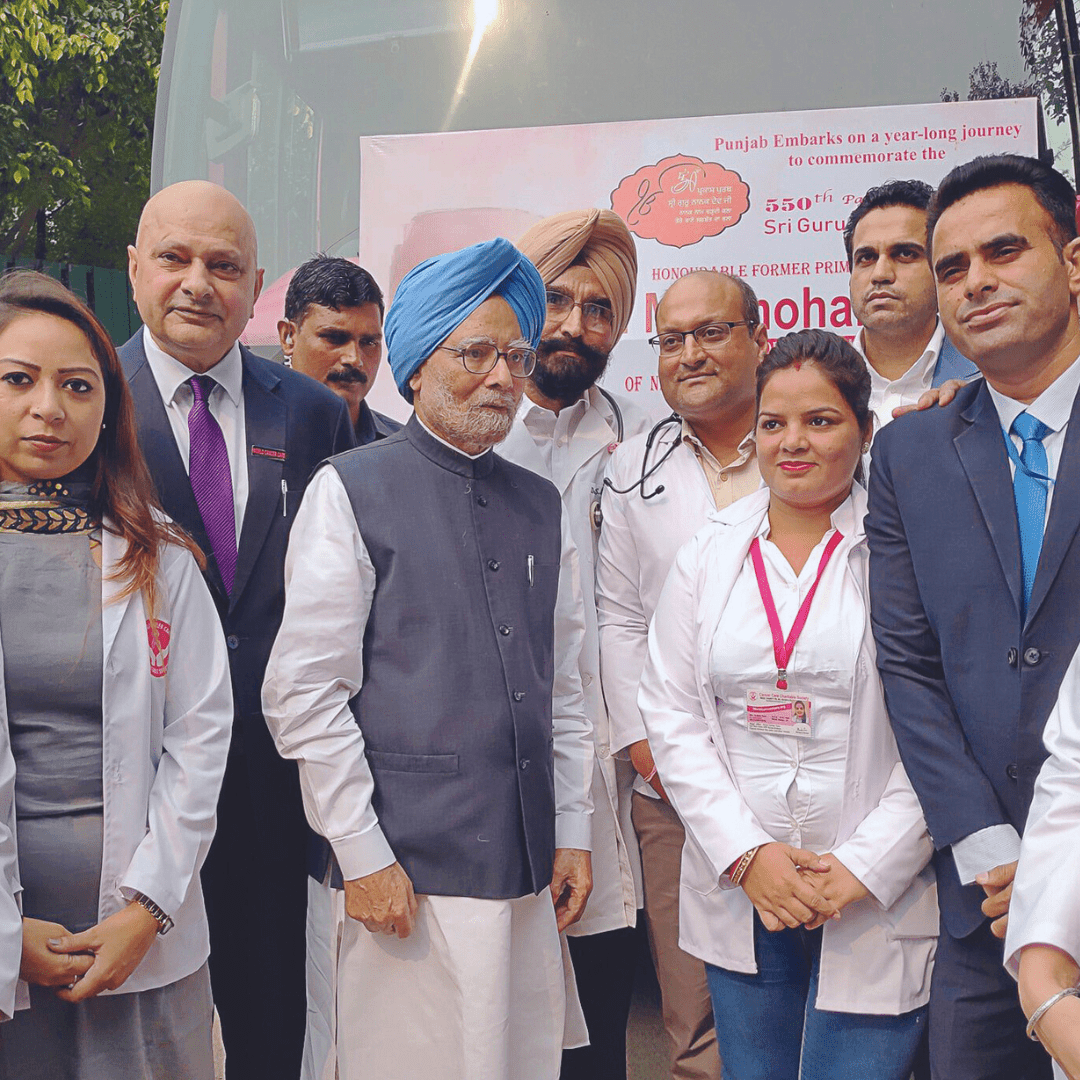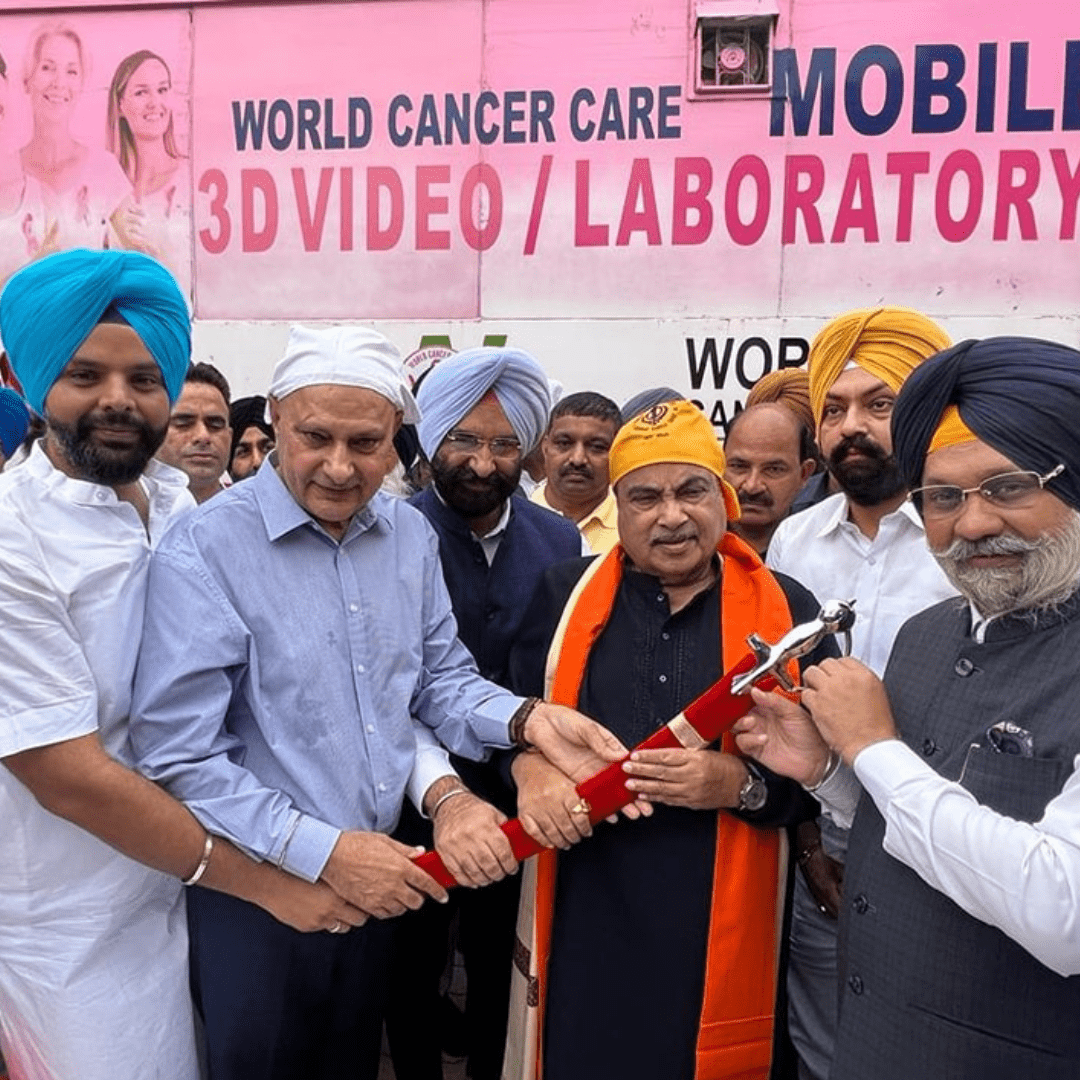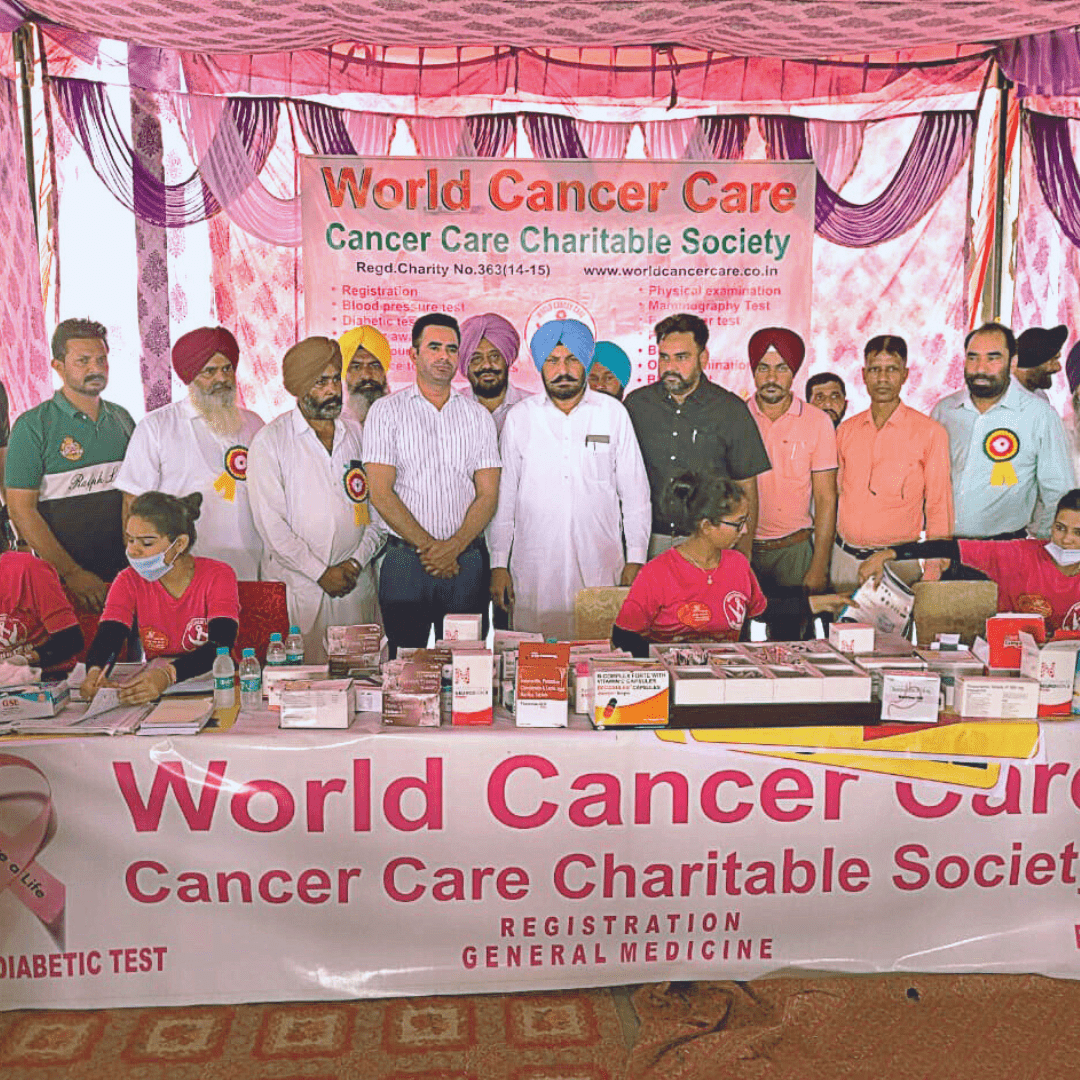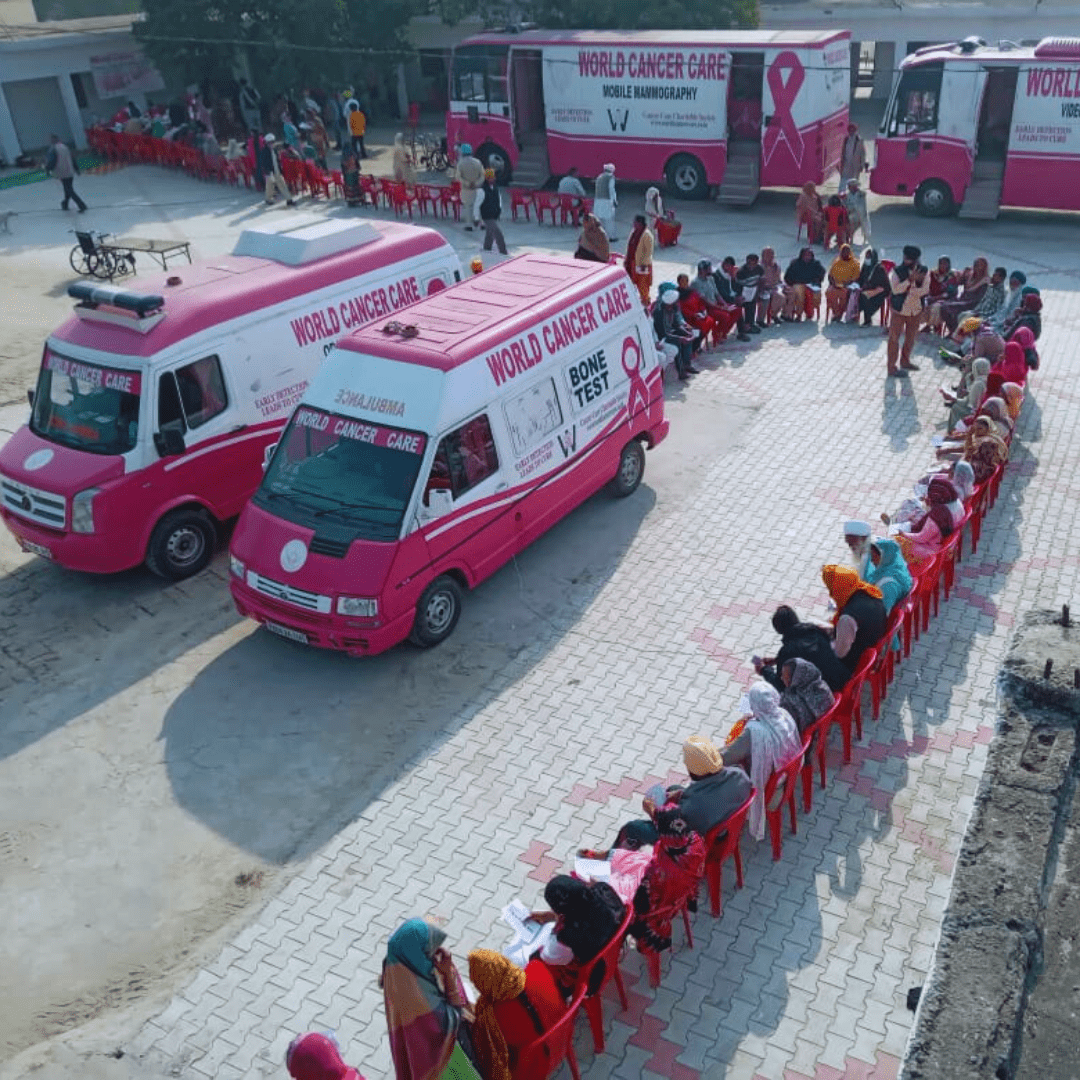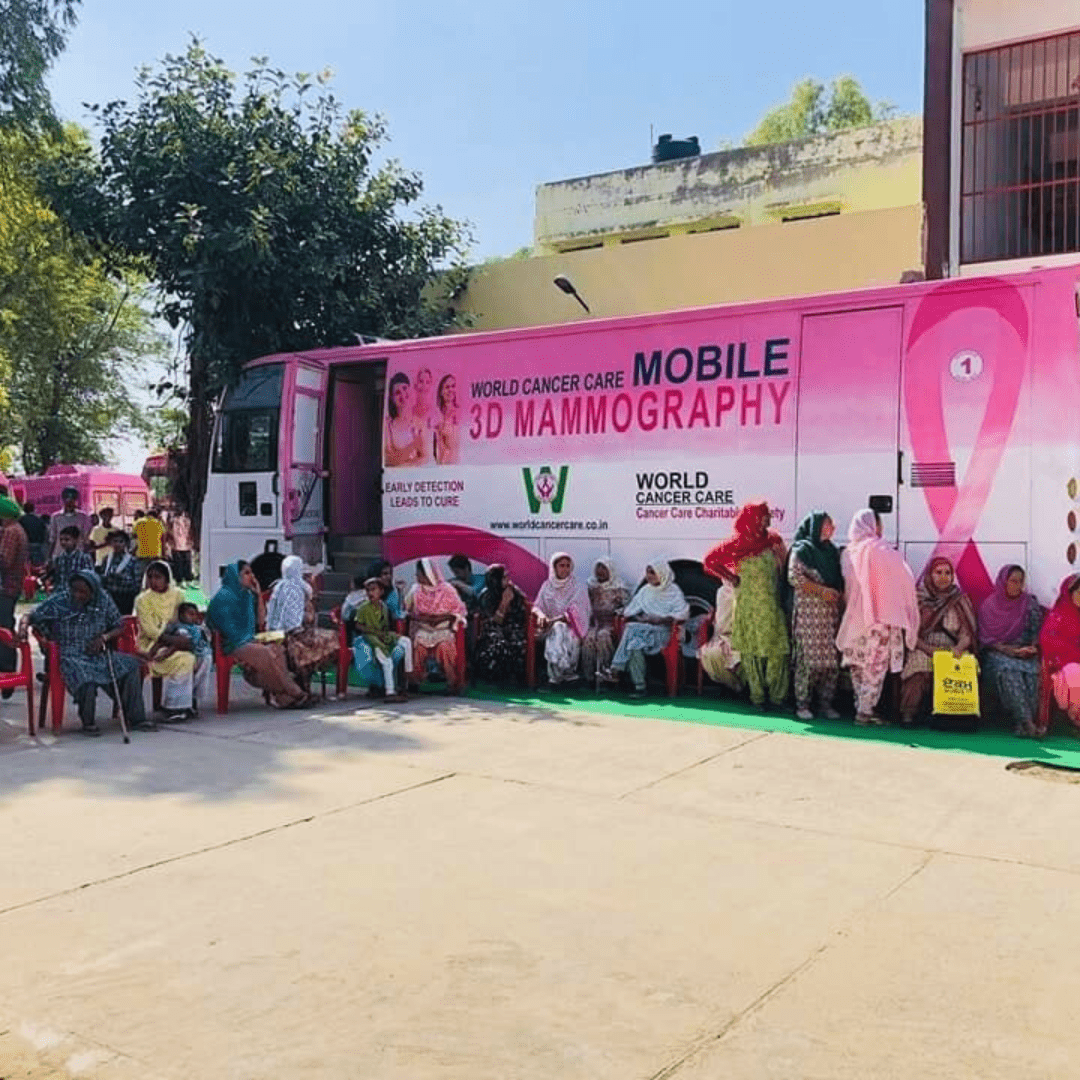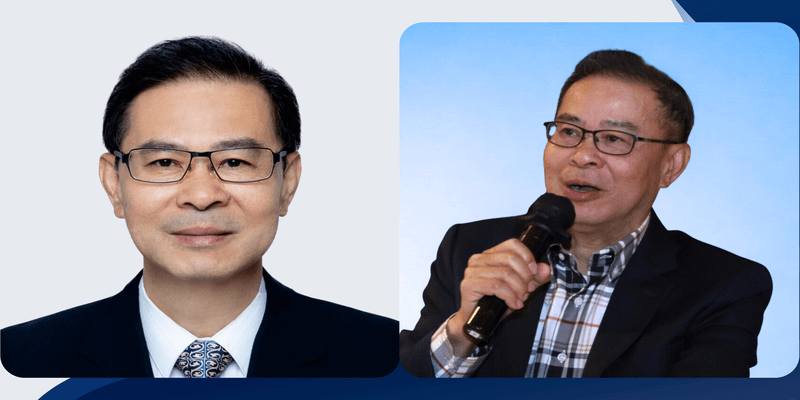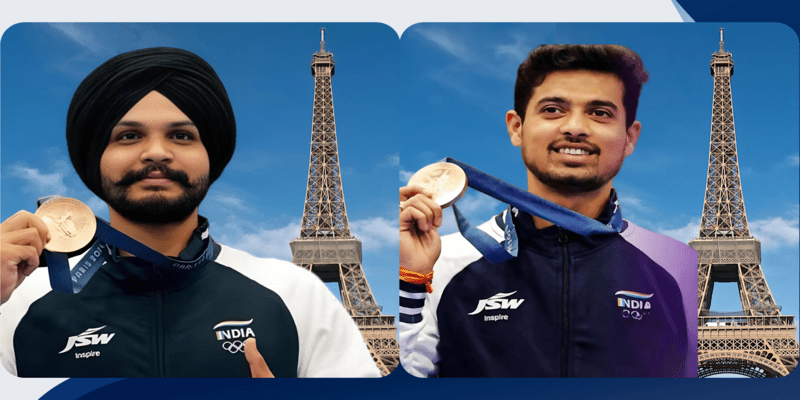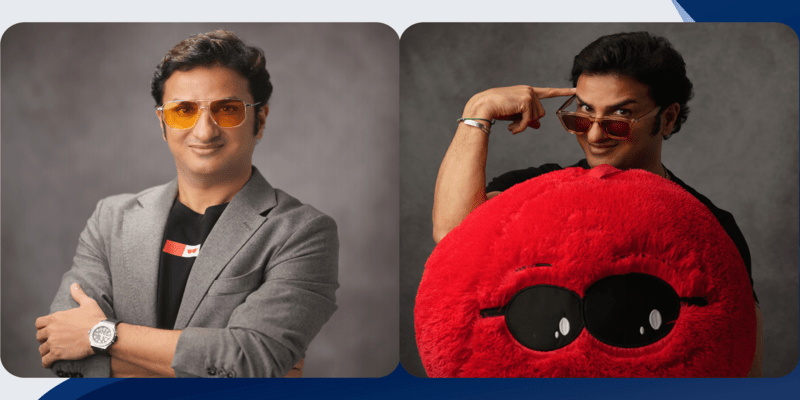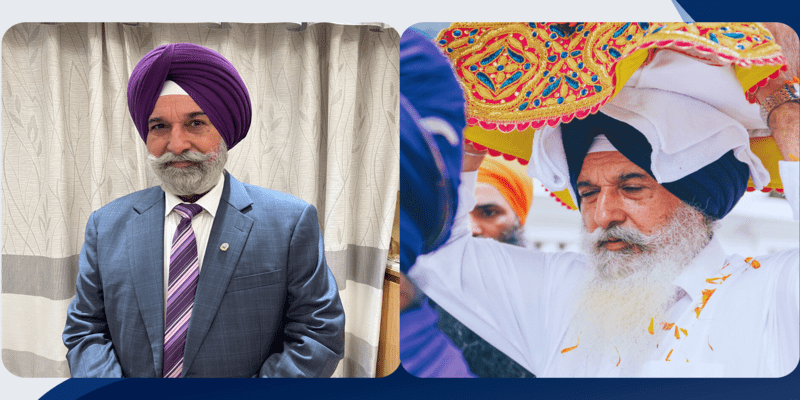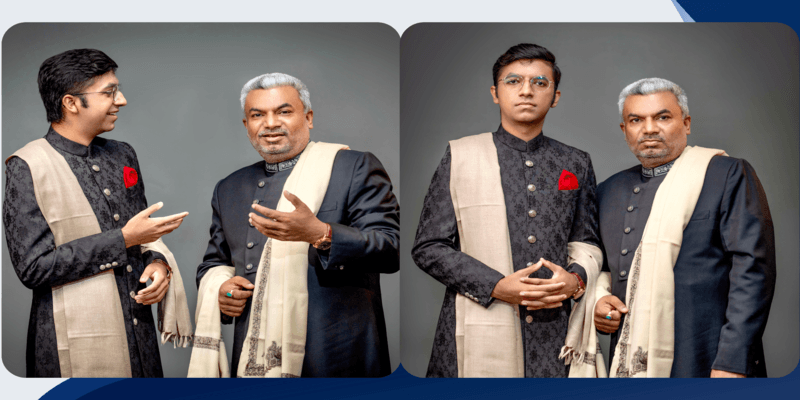A warrior against cancer: empowering through awareness
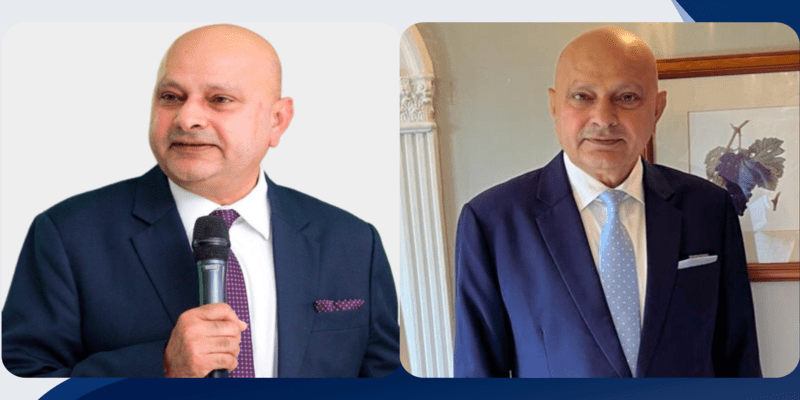
In a world eclipsed by a fast-paced rhythm, where people are going about their lives in a rush, there exist individuals who dedicate themselves to making this world a better place for all. One such person who has committed his life to waging a war against one of the most daunting adversaries humanity faces —cancer — is Mr. Kulwant Singh Dhaliwal. As a beacon of hope and resilience in the realm of cancer awareness, it is evident that his commitment is beyond the boundaries of conventional advocacy. He has become the heart and soul of a movement that seeks to transform the narrative surrounding this relentless disease by making people aware of the fact that if detected early, cancer can be cured and lives can be saved.And, at the centre of this movement lies his organisation World Cancer Care.
Leaving behind a business, Dhaliwal embarked on a mission to shatter the silence and stigma around cancer. His aim is to empower people to fight against the disease through knowledge as he believes that while cancer is curable, ignorance kills.
Beyond the traditional confines of awareness campaigns, Dhaliwal employs innovation and creativity to engage communities, making connections that amplify the resonance of their message. He ensures that his service is not just limited to spreading awareness but also serving the community by providing free testing and medicines. This is his journey of compassion, courage, and an unyielding commitment to transforming the narrative — one that revolves not only around survival but with the consistent pursuit of a world where cancer is met head-on, with awareness as its ally.
Tell us about your early life.
I was born in India in the village of Bir Rauke in Moga, Punjab. I completed my schooling and higher studies in India. After earning a Bachelor’s degree in Arts, I relocated to the United Kingdom at the age of 27. Establishing a career as a businessman in the retail and wholesale of fashion clothing, I worked for nearly two decades before retiring at the age of 47. Since then, my entire focus has shifted towards a meaningful cause. I have dedicated my life to spreading awareness about cancer. All I want to do is make a positive impact on the world and make it easier for people to understand that cancer is curable if detected early. Every day, I aim to contribute to the well being of people through awareness.
What motivated you to wage a war against cancer?
My motivation to fight against cancer comes from my personal experience. My mother was a cancer patient, and I lost her to cancer. Soon after that, I also lost my father-in-law to cancer. After losing two of my family members to this disease, I knew that I needed to do something that made it easier for others to deal with this deadly disease. Hence, at the age of 47, I took early retirement, and I dedicated myself towards the service of humanity.
My journey started with associating myself with several charities that worked around the cause in the UK. I used to raise funds for cancer patients and used to spread awareness about the disease through conventional methods. Back in 2002, in association with several charities, I started walking to spread awareness. I used to walk nearly 200 miles every month, to raise funds for cancer research. For the past 17 years, I have completely dedicated my life to the cause. At present, I am the global ambassador of World Cancer Care.
What is the goal of World Cancer Care?
World Cancer Care is a charitable organisation based out of Punjab, India. We are a group of working professionals and individuals who have come together with a common goal. Tirelessly working towards the noble cause of raising awareness about the disease, we help with its early detection amongst people living in all states of India. We organise camps across the country to educate people about cancer — be it prevention or early detection.
World Cancer Care is the only cancer organisation in the world that provides free-of-cost detection of around eight types of cancer. We believe that those who do not have the knowledge or the means to get detection and treatment also deserve a chance at life. That can be possible only if someone helps them. Now, how do we do it? We organise camps at different locations across the globe. We have our own state-ofthe- art mobile units and equipment.
The camps are open to everyone. Anyone can walk up to these camps and get a check-up done. We test for nearly eight types of cancer including breast cancer through mammography, cervical cancer through pap smear and PSA for prostate cancer.
We also test for throat or oral cancer and conduct bone density tests because if these tests reveal low bone density, the chances of bone cancer are high. Other than this, we also have a lab on wheels for the most serious cancer, blood cancer.
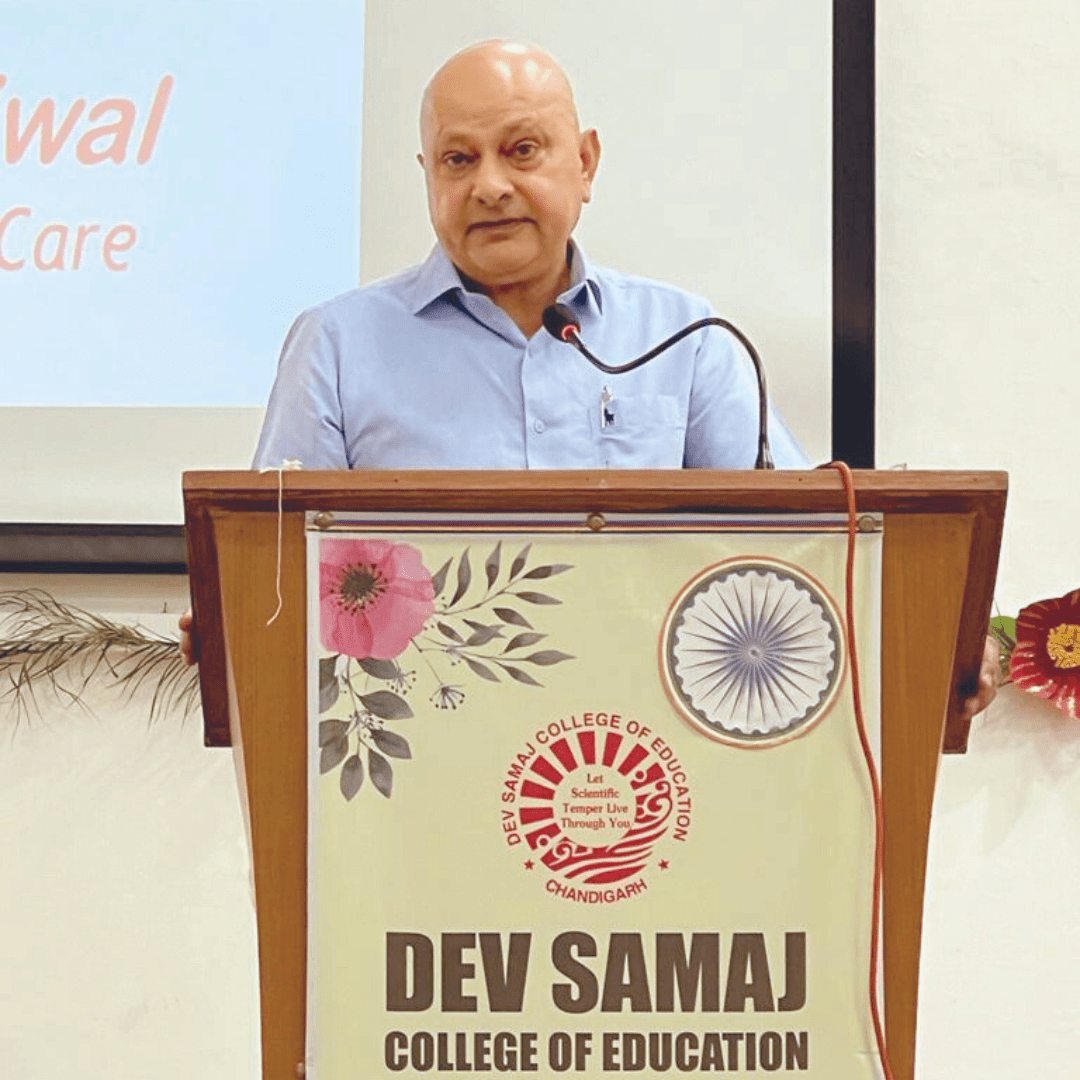
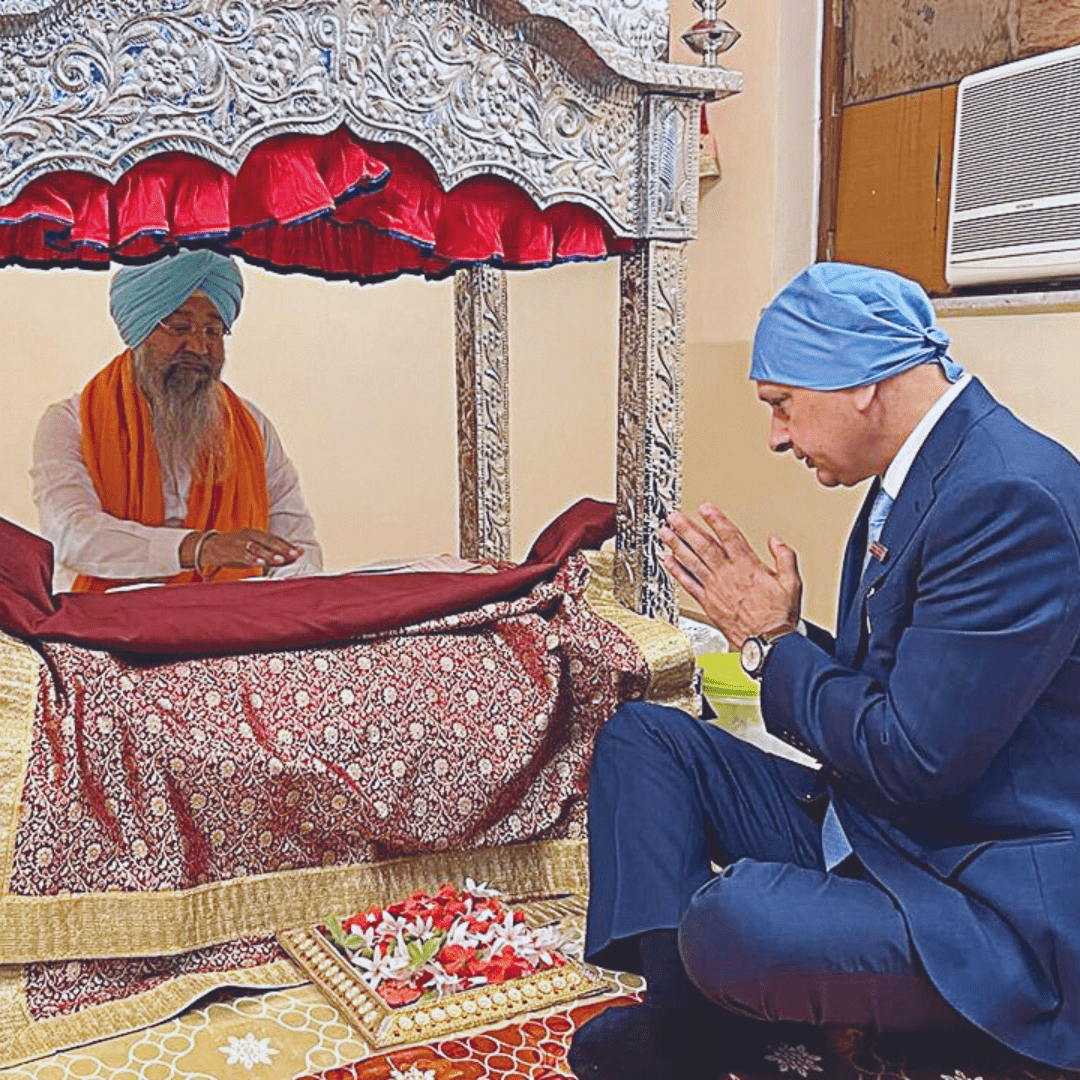
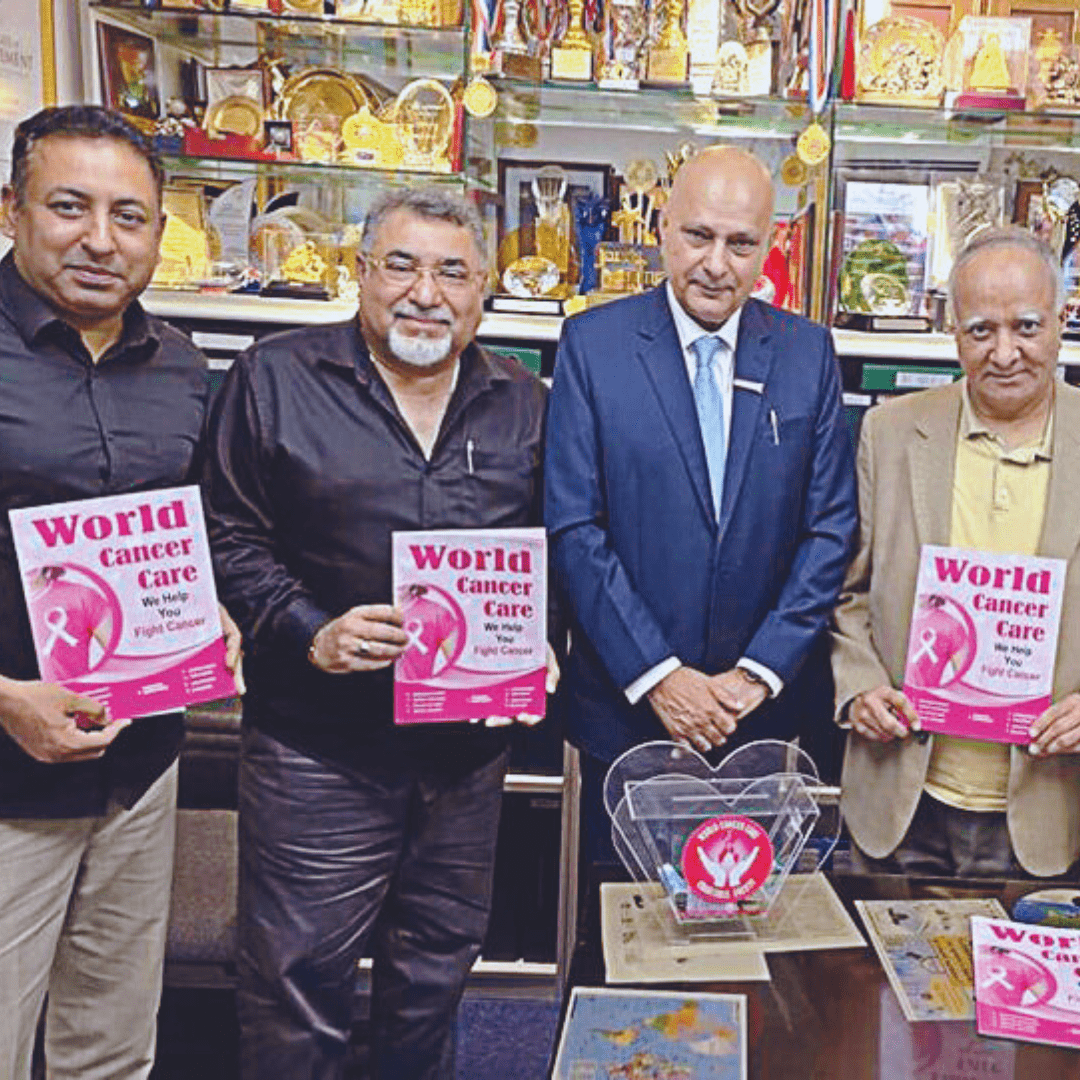
It is said that awareness is the first step to empowerment. How do you think it holds for cancer?
I believe when it comes to cancer, awareness is empowering. It is because the disease itself is curable, and it is usually ignorance that kills. Unfortunately, most people are unable to recognise the early signs of cancer due to a lack of knowledge and awareness. So, even if their bodies are giving signals, they often ignore them. We all do that… when we do not feel too well, we resort to a home-ready or decide to wait for some time before going to the doctor. However, if one knows the early signs of cancer and is aware and alert, this illness can be detected at the early stages. And, if it gets detected early, it can be cured.
Prevention and detection are both crucial. Cure is the third and the last resort. Other than early signs, there is a general lack of awareness about the prevention of cancer. Honestly, I believe that the first step towards prevention starts in our kitchens. The quality of food, the fruits and vegetables we eat is very important. Be careful that you eat clean fruits and vegetables and try to eat as much organic food as you can.
Pesticides and fertilisers have a role in breeding cancer. So, keep your kitchen clean to remain fit. Certain kinds of cancers are usually due to lifestyle choices, such as consumption of alcohol or smoking. When we already know the result, why indulge in these things? The next step is detection, paying attention to what your body tells you. The last stage is cure, being in the hospital and following all protocols. However, prevention is always better than cure.
Cancer is a big problem all over the world. It is rapidly increasing. The WHO says that every one in four females across the globe will either have breast cancer or cervical cancer.
How can individuals contribute to the global fight against cancer?
You know, when people think of community service, they resort to distributing food and water to the less privileged. I believe while that is important, these people need medicines for survival and revival. Medicines can give them a better life, a life free of diseases and illnesses. So, at World Cancer Care, we also distribute them for free. Not food, not desserts, but medicines.
Moving on, when people think of service, they also often donate to temples, churches, gurudwaras, or mosques, all of which are great. However, we should think ahead of the curve and indulge in service by distributing medicines and other necessary supplies. Service is boundless, spreading knowledge by way of leaflets, videos, and camps is all service and people should take it seriously.
In India, there are many holy places to offer prayers, but there are hardly any hospitals for the less fortunate groups to get affordable treatments. In several other countries across the globe, healthcare is free, so it is easy for people to get detected for cancer, and if, unfortunately, they have cancer, they can avail free treatment. Sadly, this is not true for India.
I think 95% of the donations made by people are for holy places — organising langars (meals), reconstructions, or donating fans, lights, etc. There are many ways in which people donate to holy places, and they get recognition for it, too. All of this is undoubtedly essential, but at the same time, it is imperative to donate towards healthcare. We do see people donating fans for gurudwaras, but who is donating fans for hospitals? That is service, too. Isn’t it?
We need to change the direction of our donations. Donate for sure, but donate at both places. When my children were born in England, we didn’t have to pay a penny. So, instead, we donated towards the hospitals. It helped us express our happiness and serve society, too. Service to the destitute is the ultimate service to the god.
If everyone contributes even a little to the hospitals, the infrastructure will improve by leaps and bounds. We live in a world where not just weddings, but funerals are also excessively lavish.
You are also the chairman of Sant Singh Dhaliwal Trust, tell us more about it?
There is cancer that affects the human body, and then there is social cancer that deteriorates society and makes it hollow. I set up the Sant Singh Dhaliwal Trust in 1991 to fight the social evils prevailing in the world. I named the trust after my beloved father. The aim is to eradicate issues such as female foeticide, child marriages, and lack of education.
Through this trust, we have given a ray of hope to many girls by educating them and teaching them life skills that will help them become self-sufficient and independent. We provide uniforms, books, and stationery to kids who can’t afford it. The trust has a simple yet impactful belief that when we give someone education and skills, we help them earn a living and eradicate poverty from their life, making them truly independent.
A message for our readers.
The world is a beautiful place but we as humans, have never counted our blessings and done irreparable damage to our environment. We have ruined our water and our air. There are many extremely polluted cities where we can not even breathe easily. All our deeds are coming back at us. The kind of polluted air we breathe in and the kind of water we drink, a lot of it can be cancerous in the long run. We need to mend our ways and start working towards making this planet a better place.
